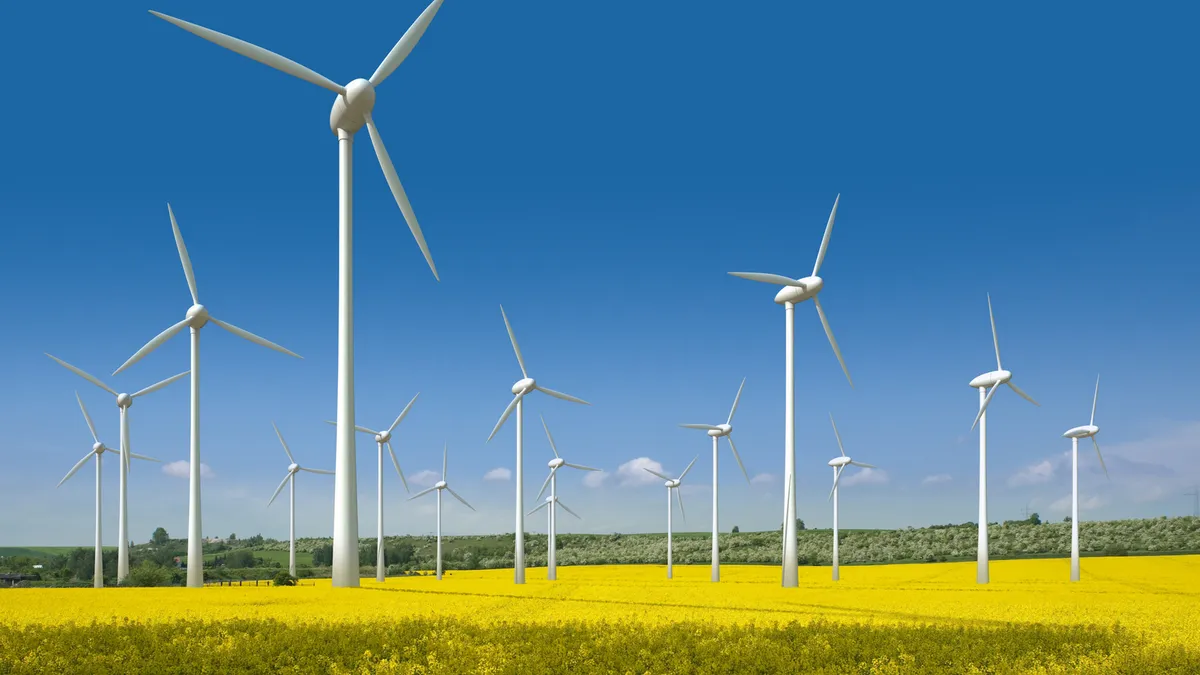Dive Brief:
- The United States is increasingly relying on wind, solar and other renewable sources of energy, making a "tectonic shift" in the country's resource base, according to a new report from the Natural Resources Defense Council.
- The report finds the U.S. energy sector had lower emissions than in 1996, including a 10% reduction in carbon pollution in the last decade.
- And the report gives great credit to efficiency, noting that electricity consumption rose 7.5% 2000 to 2014, while the U.S. population grew at almost twice that rate.
Dive Insight:
The Natural Resources Defense Council is offering the United States energy industry a broad pat on the back, highlighting increasing amounts of renewable energy, efficiency and load management as a part of the "tectonic shift" in the country's energy sector.
"The economic and environmental performance of America’s energy systems has never been better, and the single most important contributor to these positive trends is energy efficiency, the largest and least expensive way to meet the nation’s energy needs,” Ralph Cavanagh, co-director of the NRDC energy program, said in a statement.
But along with that reassurance, the national environmental group included a nudge forward as well.
“However, America can, should, and must do more to increase our efforts to help stabilize the world’s climate," Cavanagh continued.
From 2000 to 2014, the country's power consumption rose a modest 7.5%, despite the population growing at more than twice that rate. And NRDC said efficiency remains America’s largest and most productive energy resource. On the renewable side, wind power continues to dominate U.S. power growth, contributing roughly 66% (excluding hydro). Solar power doubled its output over the previous year (for the fourth year running) and NRDC said for the first time ever it eclipsed the annual generation of the nation’s geothermal resources.
Report co-author Sierra Martinez said renewable power now meets about 10% of the country's energy use.
“That’s like powering the world’s largest economy for more than a month without using any pollution-spewing coal, oil, or natural gas, and without additional harm to our lands, waters, and wildlife that is associated with extracting fossil fuels," she said.
NRDC also pointed out the country is already two-thirds of the way toward meeting the Obama administration's goal of cutting 3 billion tons of carbon pollution by 2030 through his administration’s efficiency standards for appliances and federal buildings.















